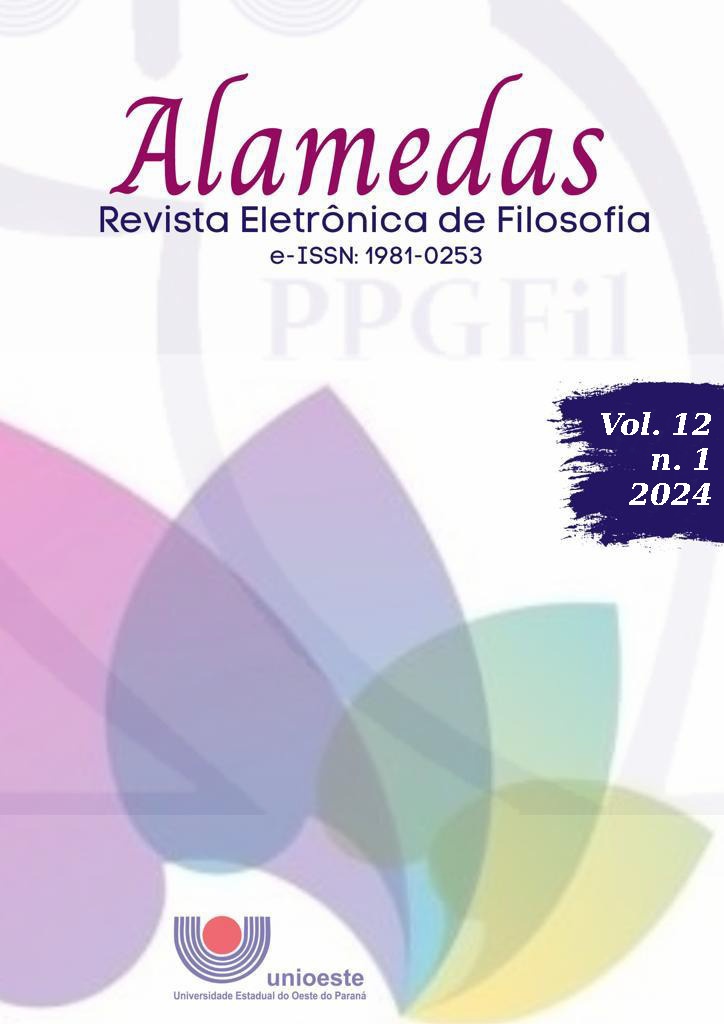Autonomia e intersubjetividade como reconhecimento dos indivíduos em Honneth
DOI:
https://doi.org/10.48075/ra.v12i1.32047Palavras-chave:
Autonomia, Ética, Subjetividade, Agência moralResumo
A apresentação que se segue irá discutir a influência da subjetividade na agência moral. Exploraremos a intersecção do processo terapêutico e dialético de Honneth com as preocupações de Kant sobre a instrumentalização do ethos. Este exercício tem como objetivo estimular um diálogo com o cenário utilitarista atual em relação aos cuidados com a vida tanto humana quanto não humana. Discutiremos as perspectivas de mundos éticos destacando as virtudes como uma ferramenta do indivíduo na sociedade. Assim, demonstraremos como a intersubjetividade contribui para a formação do ethos através do reconhecimento.
Downloads
Publicado
Como Citar
Edição
Seção
Licença
Copyright (c) 2024 Alamedas

Este trabalho está licenciado sob uma licença Creative Commons Attribution-NonCommercial-ShareAlike 4.0 International License.
Aviso de Direito Autoral Creative Commons
Política para Periódicos de Acesso Livre
Autores que publicam nesta revista concordam com os seguintes termos:
1. Autores mantém os direitos autorais e concedem à revista o direito de primeira publicação, com o trabalho simultaneamente licenciado sob a Licença Creative Commons Attribution que permite o compartilhamento do trabalho com reconhecimento da autoria e publicação inicial nesta revista.2. Autores têm autorização para assumir contratos adicionais separadamente, para distribuição não-exclusiva da versão do trabalho publicada nesta revista (ex.: publicar em repositório institucional ou como capítulo de livro), com reconhecimento de autoria e publicação inicial nesta revista.
3. Autores têm permissão e são estimulados a publicar e distribuir seu trabalho online (ex.: em repositórios institucionais ou na sua página pessoal) a qualquer ponto antes ou durante o processo editorial, já que isso pode gerar alterações produtivas, bem como aumentar o impacto e a citação do trabalho publicado (Veja O Efeito do Acesso Livre).
Licença Creative Commons
Esta obra está licenciada com uma Licença Creative Commons Atribuição-NãoComercial-CompartilhaIgual 4.0 Internacional, o que permite compartilhar, copiar, distribuir, exibir, reproduzir, a totalidade ou partes desde que não tenha objetivo comercial e sejam citados os autores e a fonte.


